
What is MRSA?
MRSA is short for methicillin-resistant Staphylococcus aureus. The bacteria is responsible for serious infection and is highly resistant to many antibiotics. MRSA is actually a strain of Staphylococcus aureus, a bacterium that is normally found on the skin and in some cases in the nasal passages of healthy people. However, unlike normal Staphylococcus aureus, MRSA is very resistant and may respond only to small number of antibiotics which makes eradication of the bacteria and treatment very difficult. It may sound amazing but approximately 30% of people are carriers of Staphylococcus aureus.
The bacteria enter the body via small cuts, sores, catheter or breathing tube. Once the infection has developed it is either small and localized (a pimple) or it occurs in more serious form affecting vital organs such as the heart, lungs, blood or bone tissue.
MRSA and Traditional or Cosmetic Tattoos
The risk for MRSA infection after permanent cosmetics (cosmetic tattooing) and traditional tattooing is slight. The risk significantly reduces if the place where the mentioned actions are performed follows rigorous standards of hygiene.
Even though the infection is passed on through cuts and grazes most there is also a chance for one to get infected with unsterilized needles or if tattooing is performed in unclean environment. Yes, the immune system is able to defeat the bacterium. But in case of immune system deficiency the bacterium starts to multiply and the infection develops. People with weak immune system are particularly susceptible to any kind of infection including MRSA infection.
In people who got the infection in tattoo saloons the disease usually starts in a form of small pimples at the very site of the tattoo. These pimples may grow rapidly and develop into ulcers, boils, abscesses and carbuncles. The affected skin eventually ruptures leaving a pus filled cavity. People who have recently had a tattoo and in case there are skin changes such as previously mentioned are due to consult their doctor as soon as possible. Only this way the condition can be diagnosed and treated on time and potential complications successfully prevented. Fortunately, MRSA is not resistant to all antibiotics and one effective drug will be found and it will be administered. The best thing to do is to take samples from the infected wound and perform an antibiogram.
In case people who perform tattooing are healthy and if they sterilize their equipment adequately the risk for MRSA decreases. This is why it is essential to check if people who are engaged in such activities are carriers of the bacteria. If they are, they must not perform specific activities until they are cured and stop being carriers. And finally, apart from risk from MRSA infection tattooing also carries a risk from other serious infections such as hepatitis C and HIV. This is why it is essential to maintain proper hygiene of the equipment used by professionals for tattooing.


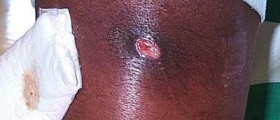





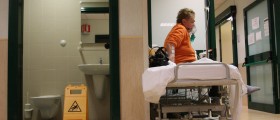
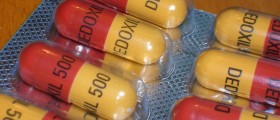
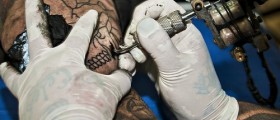





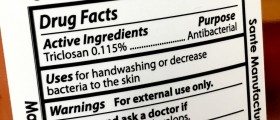
Your thoughts on this
Loading...